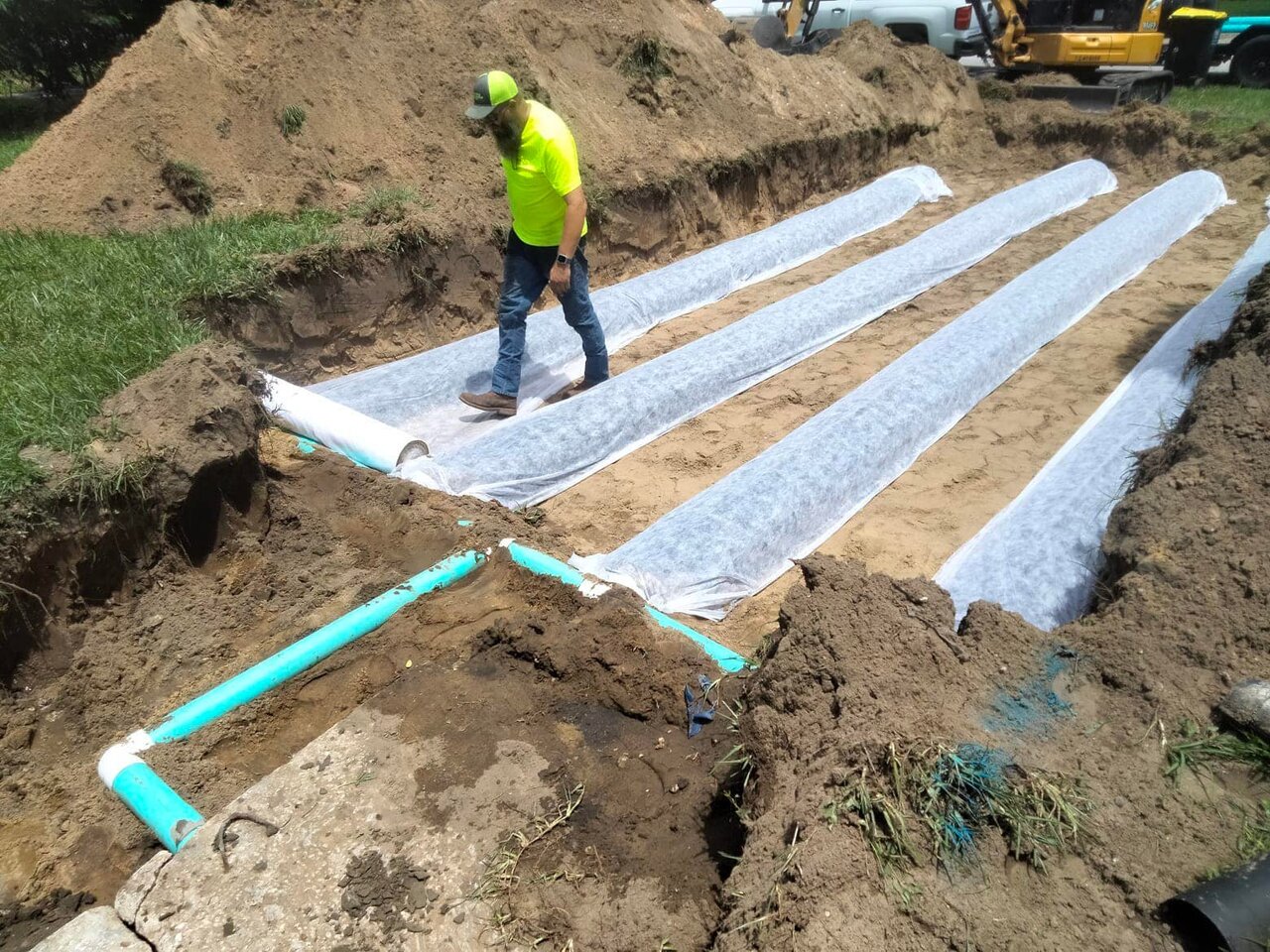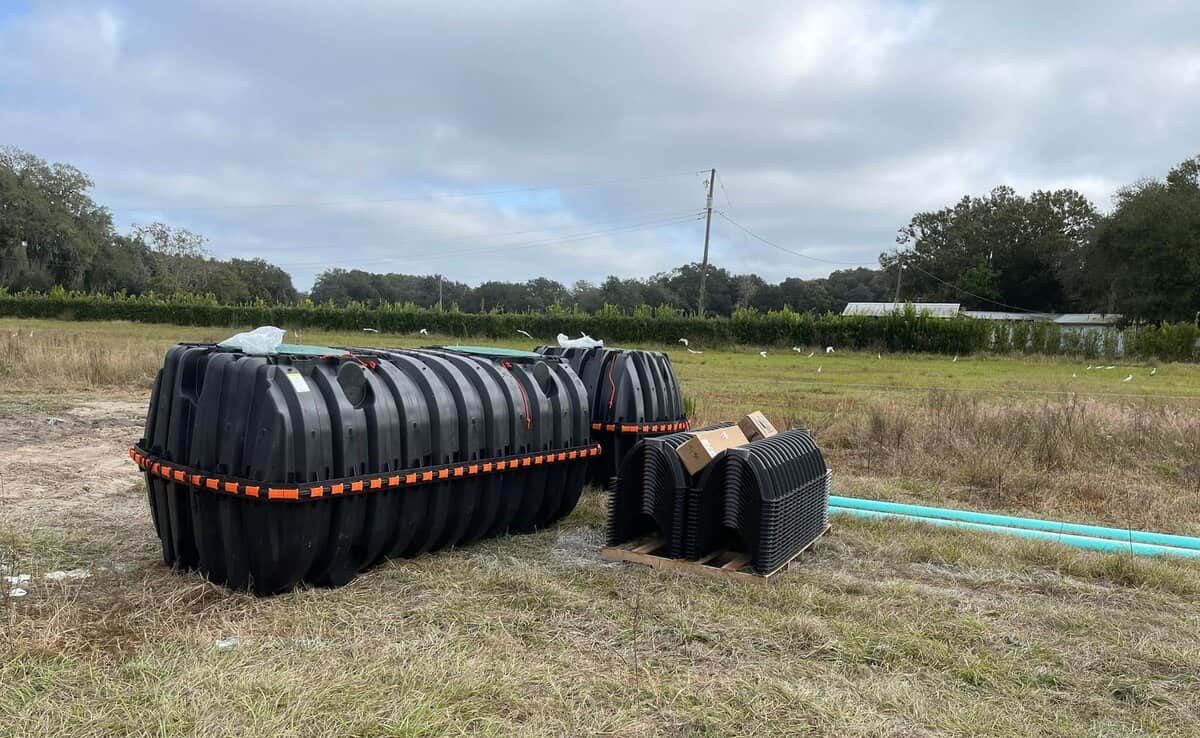Homeowners with septic systems know that there are guidelines that should be followed about what can – and cannot! – be flushed down drains. There are two primary reasons for this: some objects can cause clogs, and some things can be harmful to the bacteria in the septic tank that help break down waste.
If you want to minimize the need for emergency septic tank services, you should understand and follow the guidelines.
Bacteria in Septic Tanks
Septic tanks rely on bacteria to function properly. In a typical septic tank, the wastewater that enters it is broken down by the bacteria living in the tank. The bacteria feed on the organic matter in the wastewater, essentially breaking it down and digesting it. This process helps keep the tank from becoming too clogged or full of solid waste.
Bacteria enter a septic tank through 2 main avenues: naturally occurring ones present in sewage and those added externally (which are called activators). Activators may be added by a homeowner for preventive care or by a septic professional when cleaning out a tank.
The purpose of these bacteria is to break down solids, fats, oils, and greases in the wastewater so they can be flushed away and not accumulate in the septic system. When these bacteria thrive, they help maintain an optimal pH balance in the water and keep odors at bay.
However, if these bacteria die off, the entire system will become imbalanced and eventually overflow with solid waste buildup. This can cause backups into your home, yard, or other areas outside of the septic system itself, leading to potential threats to human health due to contamination of drinking water sources. Additionally, if the bacterial levels drop too low over time, sludge can build up within pipes connected to the septic tank which can lead to blockages throughout your property.
Liquids That Can Be Harmful to Septic Tank Bacteria
To ensure that your septic tank continues to function optimally, there are several liquids that you should be very cautious about using.
Bleach
Bleach has chlorine, which can be toxic to bacteria and can significantly reduce the population of bacteria in the septic tank.
Cleaning Products
Certain cleaning products, including even some laundry detergents, contain chemical agents that can have a detrimental effect on septic tank bacteria. Use caution when purchasing cleaning products to ensure that they are labeled as safe for septic systems.
Avoid using any industrial-strength cleaners or solvents if you have a septic system. Stick to natural cleaning products as much as possible, as many of these are biodegradable and do not contain harmful chemicals.
Here are a few septic-safe cleaning options:
- Baking Soda – Baking soda is a natural deodorizer and great for scrubbing out tough stains.
- Vinegar – Vinegar is an effective disinfectant that can clean without the use of harsh chemicals.
- Lemon Juice – Lemon juice is acidic and can help break down grease and debris in septic tanks.
- Borax – Borax has antibacterial and antiseptic properties and can be used to clean a variety of surfaces without harming the bacteria in a septic tank.
- Essential Oils – Essential oils such as tea tree oil are known for their antifungal, antibacterial, antiviral, and anti-inflammatory properties, making them safe and effective cleaning agents to use with septic systems.
Petroleum Products
Petroleum products, such as gasoline and motor oil, are highly toxic and can quickly kill any bacteria present in your septic tank.
Paint & Paint Thinner
If paint or paint thinner finds its way into a septic system, it will suffocate the beneficial bacteria in the tank and lead to an accumulation of solid waste.
Fats, Oils, and Grease and Septic Systems
Fats, oils, and greases should never be poured down drains because they can quickly cause clogs. As the fats, oils, and grease cool, they will harden in pipes, which allows debris to accumulate along the way – leading to a serious backup.
If fats, oils, and grease make their way past the septic tank, they can also have a negative effect on the septic drain field. They can accumulate in the drainfield pipes or soil and clog the drain field, leading to soil saturation that can result in an overflow of wastewater onto your property or into nearby waterways.
When dealing with fats, oils, and grease, it is best to dispose of them in a sealed container that can be thrown away or recycled properly. Cooking oil can also be filtered and reused numerous times.

Septic Systems Are Delicate Ecosystems
Septic systems are highly complex ecosystems that must be taken care of carefully in order to work correctly. All the different elements such as bacteria, oxygen, and other helpful microorganisms must remain balanced in order for the septic system to function at its best. It is important that all cleaning products used around a septic system are safe and will not disrupt this delicate balance. It is also essential to keep an eye on how much wastewater is entering the tank, as too much or too little can lead to serious issues.
Septic tanks should also be regularly inspected and any clogs or blockages should be removed immediately in order to prevent backups or overflows. Taking proper care of your septic system by using safe cleaning products and avoiding flushing grease down the drain will help maintain its delicate ecosystem and protect your property from potential damage.
Septic Service In & Near Lakeland
As a homeowner, you want not only to maintain the value of your property but also the health and safety of your family, so when you need a septic professional in and near Lakeland, contact the best – Septic and Drainfield Depot.
As a licensed and insured septic company, we are committed to providing our customers with the highest quality of service and workmanship. Our team of experienced septic contractors can help you with all your septic needs, from regular maintenance and inspections to pumping or repairs. We specialize in residential and commercial properties and offer 24/7 emergency services.
Contact us today for a free septic estimate!







